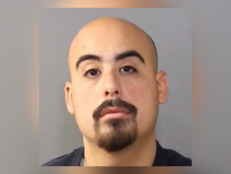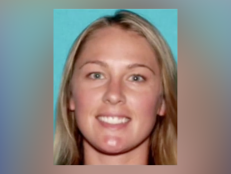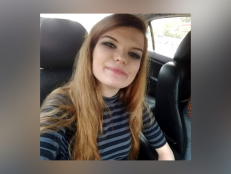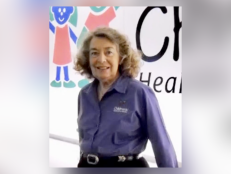Garbage Collector Fatally Stabs Fashion Writer In Her Seaside Home
Prosecutor says Christopher McCowen had "familiarity" with who Christa Worthington was, where she lived, and the fact she lived alone.
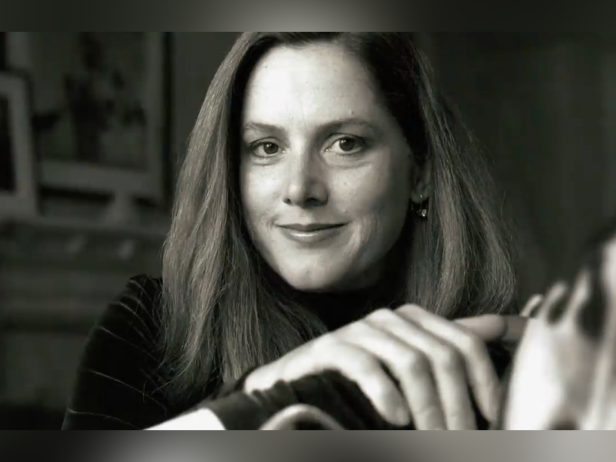
Warner Bros. Discovery, Inc. (Screenshot from "20/20 on ID")
Over two decades ago, a fashion writer was found raped, beaten, and stabbed to death in her home in a small town in Massachusetts, and it would take nearly five years for justice to be served.
In 1997, Christa Worthington, then 40, moved from fast-paced New York City to the tiny, sleepy Cape Cod town Truro to live in a cottage and start a new life.
“She had this having a baby thing in mind, and I think she felt like this would be a good place to do that,” Steve Radlauer, who dated Worthington for two years in New York, told 48 Hours.
In May 1999, Worthington’s motherhood dream came true when she gave birth to a little girl, who she named Ava.
Linda Schlecter babysat Ava often and recalled on the program that Worthington was “a very devoted mother” who “would always be playing and laughing” with the child.
Life was good for Worthington. Tragically, however, on Jan. 6, 2002, she became the first murder Truro had experienced in around 30 years.
Worthington, 46, was found in her home half naked and fatally stabbed in the chest. Then-2-year-old Ava was located near her mother’s body but unharmed in the fatal attack.
According to CBS News, someone had smashed Worthington’s front door, there appeared to be drag marks on the ground outside the residence and the victim’s personal items were scattered about the driveway.
DNA of an unknown male was found on and in Worthington’s body. Police immediately began looking into multiple persons of interest close to Worthington, including her former boyfriend, who discovered the body, as well as Ava’s birth father, a married local man.
In 2003, one year after the slaying, DNA results showed none of the men police were looking at were matches. Investigators then began focusing on identifying other possible suspects, and at one point the district attorney even requested all male Truro residents submit their DNA for analysis.
In April 2005, after three years of searching for Worthington’s killer, police got a major break in the case when a crime lab finally came up with a match: Christopher A. McCowen, the victim’s garbage man, who voluntarily submitted his DNA to police a year earlier.
Prosecutors said McCowen initially attempted to deny he knew Worthington — until he was presented with the DNA evidence.
In a 2017 interview with 20/20, McCowen confirmed he was acquainted with Worthington because her cottage was on his trash route. “Being a garbage man, you know, I get to go by everybody’s houses and, you know, get to talk to them briefly,” he said.
Three days before she was found dead, McCowen said Worthington wanted help getting rid of a Christmas tree. “She asked me to come in the house” to look at it, and, he alleged, “one thing led to another.”
“It just, like, it was just a mutual thing between two people, I guess,” he said. “We started kissing. Then we ... ended up having, having sex.”
At trial years earlier, however, prosecutors presented the DNA evidence and said McCowen’s story about the events leading up to the murder kept changing during a police interview. In one version, prosecutors said, McCowen claimed he and a friend were drinking and beat up Worthington after they went to her house but it was the friend who killed Worthington. That friend, who testified for the prosecution at trial, denied the accusations. The man’s DNA was not found at the crime scene and he provided police with an alibi.
McCowen also claimed to 20/20 that he was under the influence of multiple drugs during the six-hour police interview, including cocaine, marijuana and Percocet. “[The police] kept on switching everything up,” he told the program. “I was so intoxicated off of all of them drugs that I really didn't know what the hell was going on.”
CBS News reported that District Attorney Michael O'Keefe believed that McCowen’s motive for committing the crimes was simple and “he went to this location for the purpose of having sex with this person, that was denied to him, and in a rage, he raped and killed her.”
“This person wanted the company of a woman, after partying and drinking all night,” O'Keefe said. “So, at around 1:30 a.m., McCowan drove to Christa's house in Truro, where he killed” Worthington, a woman he didn’t have a relationship with “other than his familiarity with who she was, where she lived and the fact she lived alone.”
In November 2006, nearly five years after Worthington died, McCowen was convicted of first-degree murder, aggravated rape and aggravated burglary and sentenced to three consecutive life terms without the possibility of parole.

